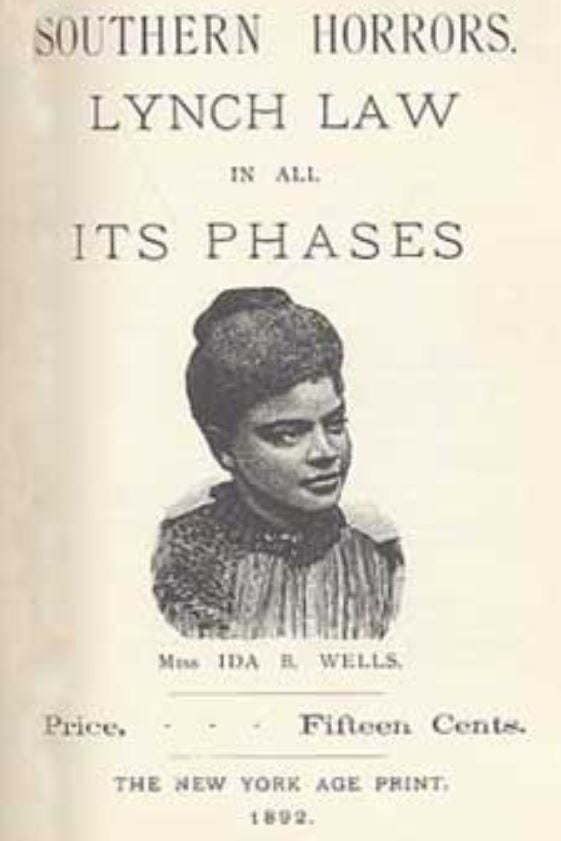Harvesting 'Strange Fruit' in Alabama
An 80-year-old protest song that still shivers the souls of Americans today
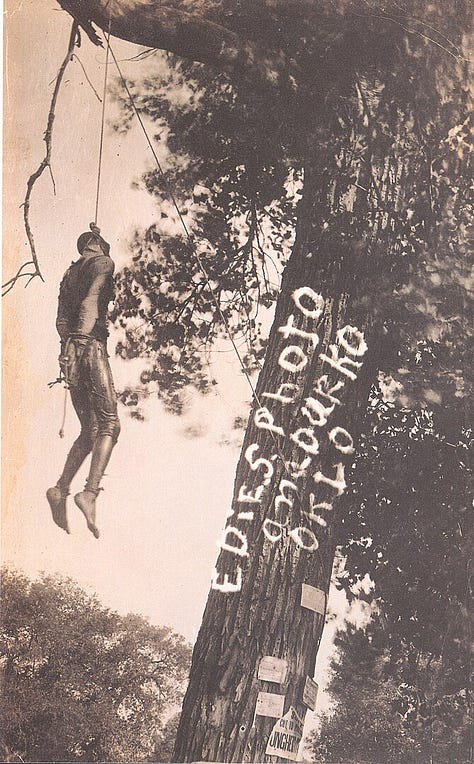

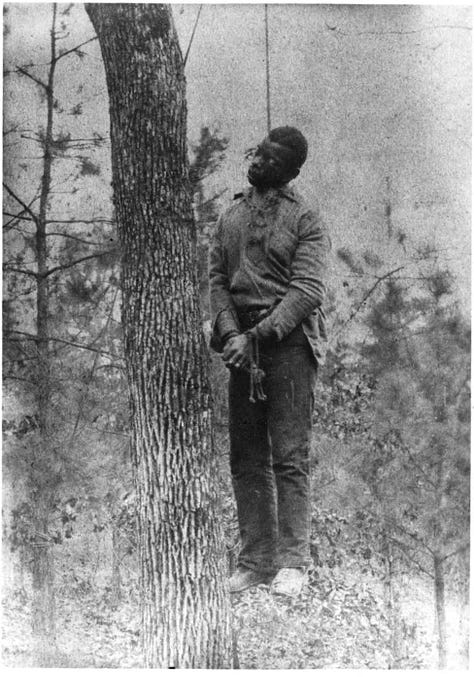
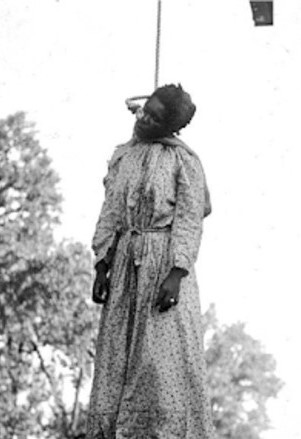
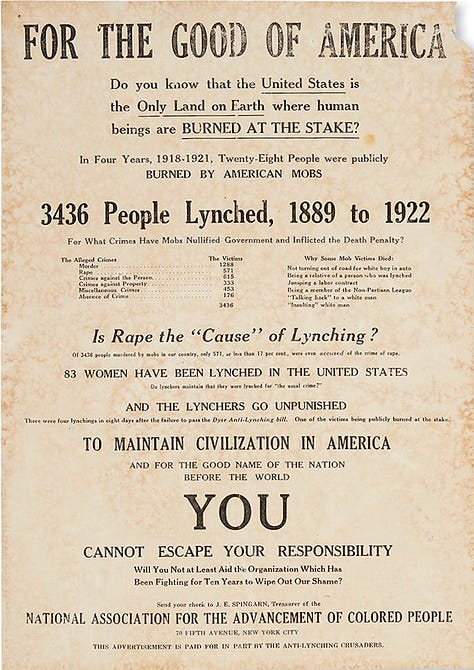
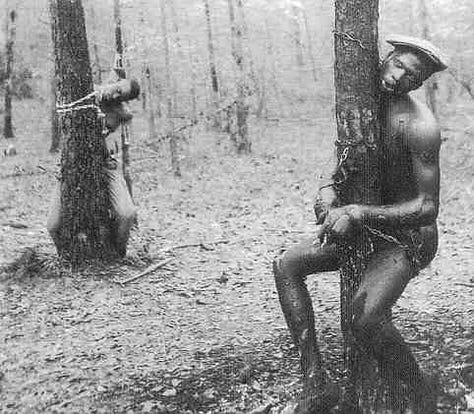
Nothing prepares you for the reality of this song. It is a devastating lament to an atrocity of American history. It is beyond sad; it is a record of immorality.
Protest songs can act as rallying cries, tell stories of heroic deeds or rant about the government. Strange Fruit just tears your heart out. It’s cruel for good reason.
The gallery photos above are all part of the public domain. They are not filed away in some obscure museum archive. They exist in the light of day. They expose America for its putrid past. They should never be hidden in the dark crevices of history.
These photographs should also be hard to look at. Can it get even worse?
Yes. These very public lynching events not only brought out the townsfolk, the photos were used as postcard scenes to send back home to mom and dad. This is not some Civil War era tragedy, this is just over 100 years ago. It’s as American as Coca-Cola.
The Legacy of Lynching
Sometimes statistics seem cold and unreal: deaths by lynching is a heinous example.
African Americans were racially targeted for lynching in Southern states, where most of them lived. Remember, nearly four million slaves were freed after the Emancipation Proclamation of 1863, signed by President Lincoln during the war.
The data is disturbing. From 1883 to 1941, one study cited 3,265 lynching victims as “black,” mostly males. This period coincides with local and state Jim Crow laws put in place to keep races separated. Most of these lawless accusations related to murder or sexual assault crimes.
In the 1890s, Ida B. Wells, a teacher turned journalist in Memphis, Tennessee, exposed the bigotry and business motives behind these Southern lynchings. Her investigative work was published in newspapers and pamphlets. Not only did she lead anti-lynching campaigns, she refuted that these murders were always tied to sex offences. Instead, she reported that some whites were out to suppress competing black-owned businesses.
A Song Sways in the Swelter of Savagery
A single photograph of a mob lynching was the catalyst for writing Strange Fruit. In 1930, two African-American men were forced out of jail, beaten and hanged in the Marion, Indiana courthouse square. A crowd, including children, estimated at 5,000 witnessed the spectacle and the studio photographer “sold thousands of copies … in the next ten days.”
Seven years later, Abel Meeropol, a schoolteacher in New York City, saw a copy of the graphic photo that compelled him to write a poem called “Bitter Fruit”. It was published in a magazine, reset to music and performed under the new name Strange Fruit.
In 1939, Billie Holiday recorded and popularized the version we hear today.
Reading the lyrics on their own are gut wrenching enough. They do not hold back on the brutality and violence of lynching.
Black bodies swinging in the southern breeze
The bulging eyes and the twisted mouth
Then the sudden smell of burning flesh
The haunting melody and harsh delivery add to the utter ugliness of singing about dead, rotting bodies juxtaposed against the sweet smell of Southern magnolias.
It takes brave souls to challenge societal norms and tell the truth. Billie Holiday feared the song would make her a target for harassment. Barney Josephson, who ran the first integrated nightclub in New York City, understood the song’s unequalled impact.
When Holiday ended her performance with Strange Fruit, only a single spotlight shone on her face. The club customers and staff listened in silence and darkness.
Southern trees bear a strange fruit Blood on the leaves and blood at the root Black bodies swinging in the southern breeze Strange fruit hanging from the poplar trees Pastoral scene of the gallant South The bulging eyes and the twisted mouth Scent of magnolia, sweet and fresh Then the sudden smell of burning flesh Here is a fruit for the crows to pluck For the rain to gather, for the wind to suck For the sun to rot, for the tree to drop Here is a strange and bitter crop
Coda
It is hard to imagine a country so enmeshed in racism that lynching would be a cause for town gatherings. No law enforcement, no trial, no opposition, no protests, no punishment.
I have family from the South and I grew up in Texas too (there are a few differences). These bygone days of a century past are not really forgotten. The remnants of racism, the generational passage of prejudice and the known history are still active.
Protest songs speak to your passion, your conscience and your desire for a call to action. How do we gain resolve from these past masterwork songs and put forth new initiatives in our own lives?
Strange Fruit stirs up the emotions. It is a vivid reminder that humanity can be vile.
In Memoriam
Bennie Simmons, 1913, Oklahoma Unknown (Six African-American men), 1916, Georgia George Meadows, 1889, Alabama Laura Nelson, 1911, Oklahoma NAACP Anti-lynching broadside Roosevelt Townes, Robert McDaniels, 1937, Mississippi
==============================
If you like the songs and/or essays, please help me distribute them by sharing and following me on Twitter, Substack and Instagram.
I appreciate your time, support and aid in this endeavor. Except in special cases, my original songs are free to the public. Please be mindful that alterations for racist intent is not permitted. Be critical, not hateful.




